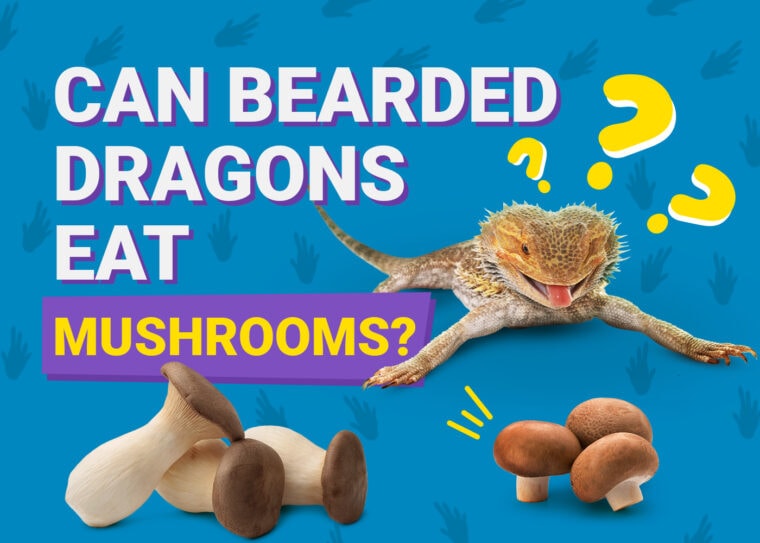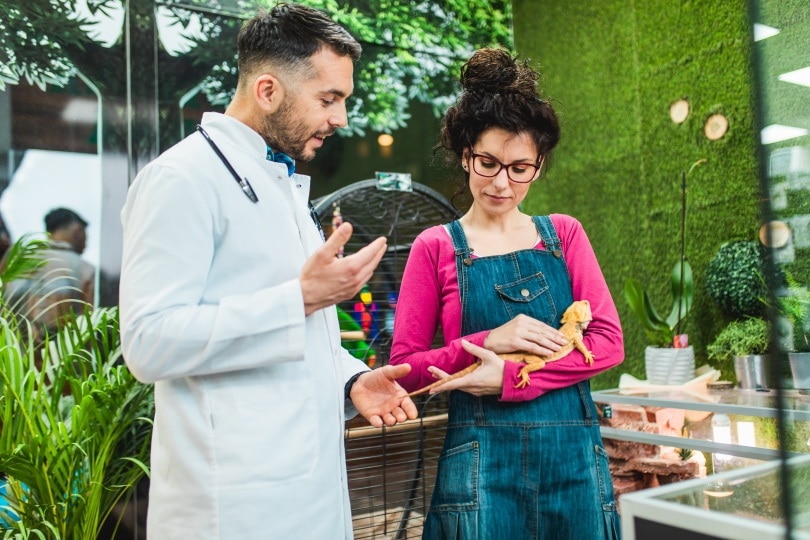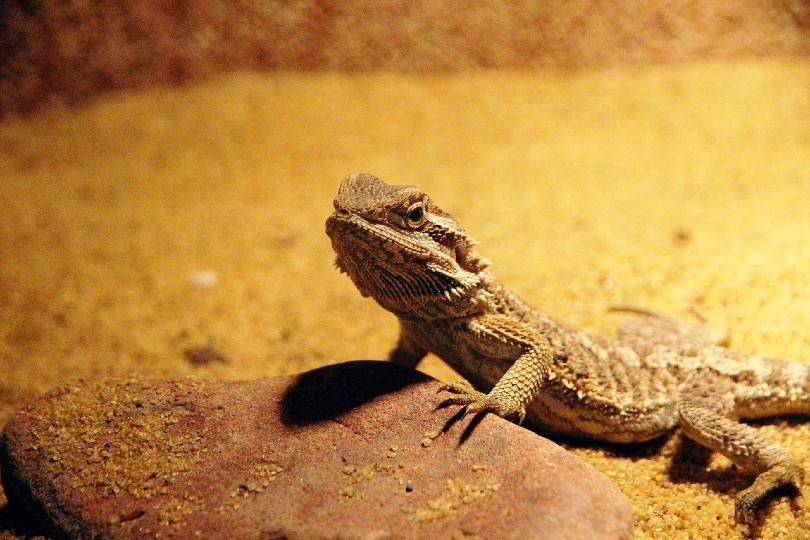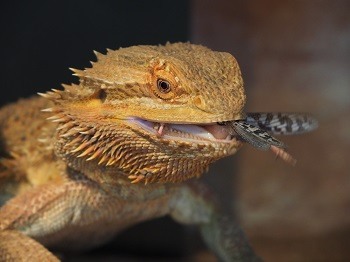
If you are a fan of mushrooms, you might wonder if your beardie can enjoy them, too. After all, these fungi are quite delicious for humans, pairing well with many entrées. There are so many types, flavors, and textures. And your beardie can benefit from lots of variety in their diet to thrive as well.
But if you’re wondering, “Can bearded dragons eat mushrooms?” we will have to disappoint you and tell you—no. Your beardie should never eat mushrooms, even in small amounts. There are a few reasons why this is not healthy for them. Let’s explain in more detail.
Why Can’t Bearded Dragons Eat Mushrooms?
In looking at the nutritional benefits versus the adverse effects of mushrooms, you have to look at the contents. Bearded dragon nutrition is very specific and different from many other pets. Because of their unique needs, it can be a little tricky to wrap your head around their dietary needs at first.
Dragons are highly sensitive to unbalanced levels of calcium and phosphorus in their diet. If they have too much of one or the other, it can tip the scales, having negative consequences1.
In a strict sense, human-grade edible mushrooms aren’t toxic and don’t poison your bearded dragon. Instead, mushrooms aren’t recommended as a staple in a bearded dragon’s diet because of their calcium-to-phosphorus ratio.
Calcium to Phosphorus Ratio
For healthy adult bearded dragons in maintenance, their diet should have a calcium-to-phosphorus ratio of anywhere between 1.5:1 and 2:1. This means calcium should be around twice as much as phosphorus. The recommended ratio for juveniles is around 2:1, and dragons that are breeding (especially females) require a much higher calcium intake compared to adults in maintenance.
Unfortunately, mushrooms have a terrible calcium to phosphorus ratio. On average, mushrooms have a calcium to phosphorus ratio of 1:18.
If bearded dragons have an influx of phosphorus in the diet, it can cause an imbalance of calcium. This is because their body will try to balance the levels of phosphorus in their system by releasing calcium stored in bones to combine with phosphorus. When this process repeats itself for prolonged periods of time, it leads to the weakening of their bones, and the resulting condition is called metabolic bone disease.
In addition, a poor calcium to phosphorus ratio is undesirable for the long-term health of a bearded dragon because it may predispose them to kidney or parathyroid issues. Therefore, mushrooms should be viewed as something that is undesirable in a bearded dragon’s diet (but not toxic).
In addition to the undesirable calcium and phosphorus content, there isn’t a lot else that mushrooms offer that is very beneficial to your dragon. So, bearded dragons are better off with a variety of other fruits, veggies, and protein sources instead.

Oxalates
Oxalates are something that your bearded dragon is going to run into within their regular diet. They are also sometimes referred to as oxalic acid. Small doses of oxalates do not harm or hurt your lizard. However, when they start to get too many, it can really upset their natural cycle.
Oxalates are chelating agents, and they cause calcium to bind with them in your bearded dragon’s system. When this happens, your bearded dragon’s body cannot absorb calcium, which is one of the most vital minerals that you offer to your beardie. Excess oxalates can bind with calcium in the kidney, and they lead to kidney stones, a very painful condition which requires medical attention.
Calcium provides bone growth, skin health, solid structure, and proper bone density. Your beardie can develop even more severe health issues such as metabolic bone disease after prolonged calcium blockage.
Metabolic bone disease causes your bearded dragon to develop brittle, stiff bones, even leading to paralysis in some cases. Adding in a food item like mushrooms can lead to much more trouble than what it’s worth, so you should avoid them altogether.

Mushroom Poisoning
It is important to note that while mushrooms that humans eat are not poisonous for bearded dragons, wild mushrooms are toxic for bearded dragons and can lead to serious signs, depending on the type and amount of mushroom your bearded dragon consumes.
If you know that your bearded dragon accidentally ate a mushroom, you might see the following signs:
These signs may also occur if your bearded dragon inadvertently consumes a large amount of human-grade edible mushrooms as well. If you suspect that your bearded dragon has consumed mushrooms, or if your bearded dragon is displaying these signs, you should take them to your veterinarian.

Summary
Mushrooms of all varieties are a big “no” for your bearded dragon. It doesn’t matter what type or how you prepare them—they are considered detrimental to your lizard’s nutritional welfare. They also contribute to calcium blockages, which can be deadly. When you’re writing up the newest menu of beardie-safe foods, keep mushrooms away at all costs.
Featured Image Credit: congerdesign, Pixabay











